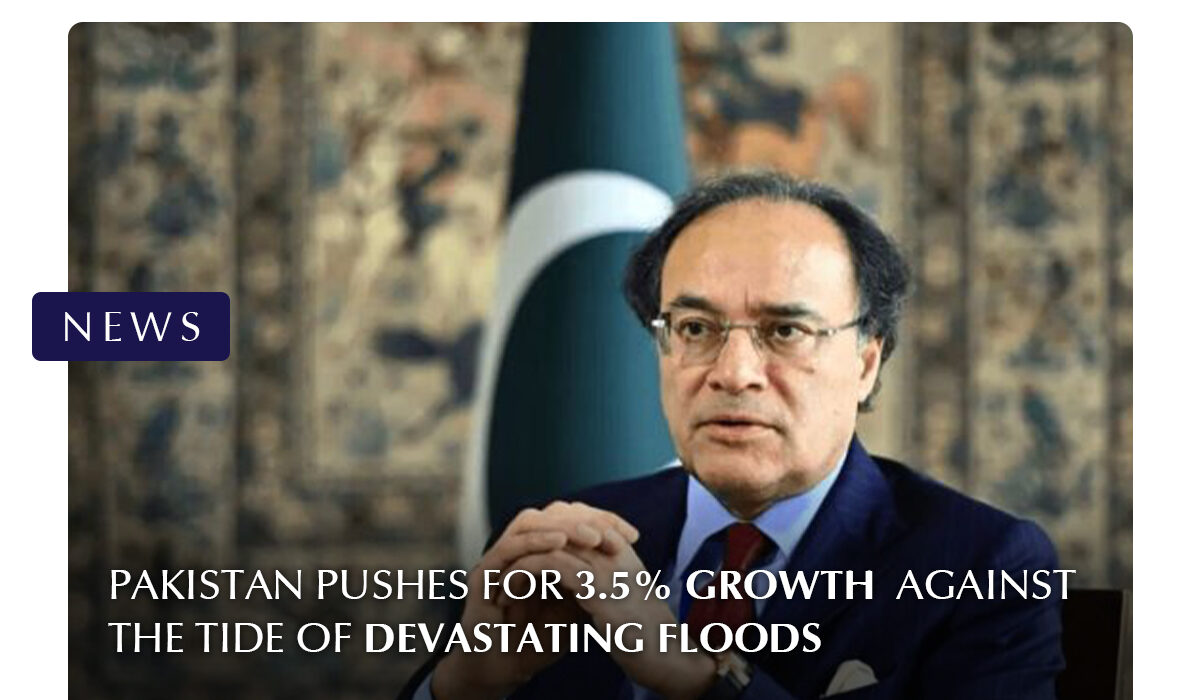ISLAMABAD: Pakistan expects its economy to grow by approximately 3.5% in the current financial year despite widespread destruction caused by this year’s monsoon floods, Finance Minister Muhammad Aurangzeb said in an interview with Chinese media on Tuesday.
Pakistan faced yet another devastating monsoon season, which triggered massive flooding across multiple regions. More than 1,000 people and 22,000 livestock have been lost since late June, while floodwaters have destroyed crops spread over 2.2 million acres of farmland.
The scale of the disaster affected more than 4.5 million people and forced authorities to evacuate over 2.6 million residents from high-risk zones.
Despite the setbacks, Aurangzeb expressed confidence in the country’s economic trajectory. “We grew at 3% GDP last year,” he said, adding that although growth had initially been projected at over 4% for the current year, the floods have weakened the outlook. “Still, I’m quite hopeful that we can manage anything close to 3.5% during this fiscal year.”
The minister said Pakistan’s broader economy was showing signs of recovery, supported by easing inflation, strengthened foreign exchange reserves, and renewed confidence from international rating agencies.
Fitch, S&P, and Moody’s all upgraded Pakistan’s outlook earlier this year, marking the first time in nearly three years that their assessments have aligned.
Aurangzeb also highlighted progress on long-delayed privatization initiatives. He pointed to the recent sale of the First Women’s Bank to a United Arab Emirates conglomerate, describing it as a long-standing item on the government’s privatization agenda.
Pakistan International Airlines is next in line, and the minister said he is “very sanguine” that the national carrier will be privatized before the end of the year.
Emphasizing the importance of Pakistan’s partnership with China, Aurangzeb noted that economic cooperation between the two countries is entering a new phase.
After years focused on infrastructure under the China-Pakistan Economic Corridor, the relationship is now shifting toward industrialization, which he described as key to Pakistan’s long-term prosperity.

